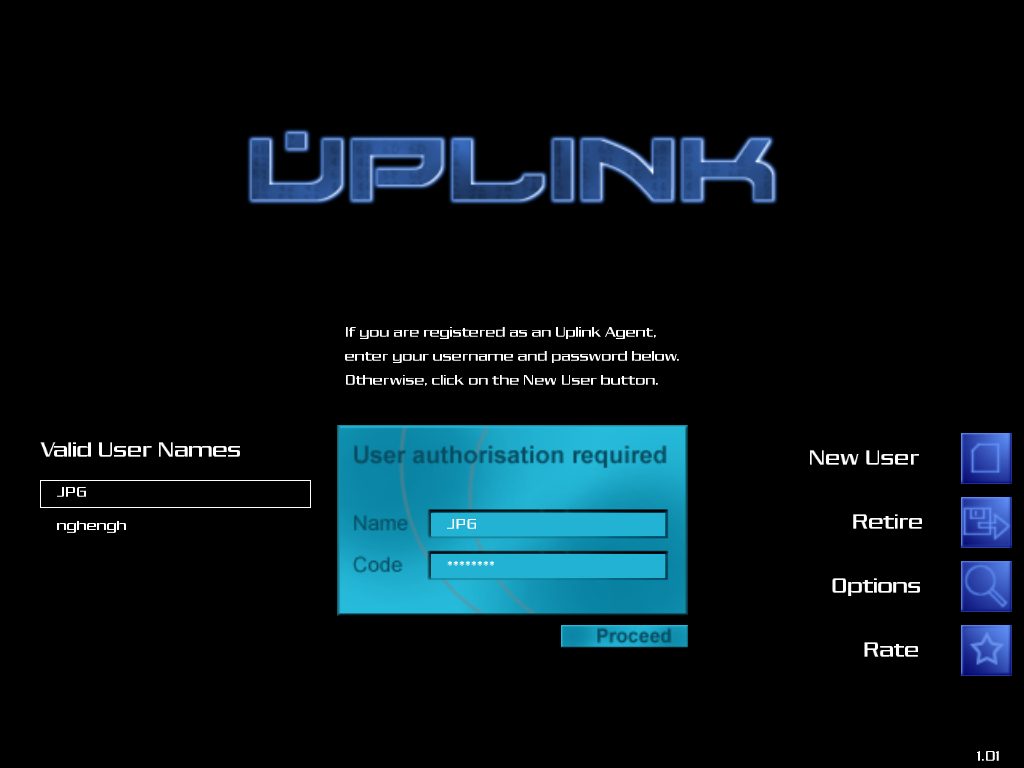Rarely do trailers so accurately capture the feeling of gameplay. Imagine the 90s cyber-crime movies Hackers or Sneakers in videogame form. That’s Uplink. Aside from the obvious interface redesign, Uplink is essentially unchanged from its PC form. You play an agent of shadowy global computer hacking firm Uplink who takes on clandestine missions of increasing complexity. Your work is all remote: bouncing your signal from modem to modem, you connect to target machines, bypass or disable anti-intrusion measures like password locks and proxies and accomplish your objective—making sure to disconnect before the trace connects back to you. Don’t forget to delete the system logs to cover your tracks: get caught by the feds, and Uplink disavows all knowledge of you. Game over.

At first, your anonymous clients may ask you to delete a rival firm’s research data or falsify an academic degree for one of their employees. But it won’t be long before you’re breaking into encrypted government databases to erase criminal records or frame targets for bank fraud. More complicated jobs will necessitate upgrades to your hardware and software, creating a natural level-up system. Advancing far enough up the Uplink corporate hierarchy triggers a set of story missions, but hacking is mostly its own reward. More complex hacks play out like puzzles hinging on dexterity, timing and knowledge. Throughout, the constant anxiety caused by the threat of discovery is balanced by the thrill of defeating increasingly more elaborate security systems. The fictional world is subtly built through interaction design: like many games of its era, Uplink is often deliberately obtuse about explaining its systems, but rewards players who take the time to explore and experiment.
There are a few hiccups in the translation to iOS, but they’re relatively minor. Several hacks require you to pull up the virtual keyboard and enter data, which can become unwieldy when the clock is ticking. And while the sparse look of the original game is preserved, the cramped real estate on screen can occasionally lead to frustrating missed clicks. Yet this frustration often adds to the already enjoyable tension of the moment. Few games effectively exploit the balance between power and vulnerability. Uplink does. Hacking a well-defended mainframe makes you feel like a superhero, but you never stop looking over your shoulder.
By and large, this is an excellent implementation, perfect for short bursts of play. Like the hacker in the trailer, we can pull out the iPad, hack a bank and stick it back in our bags. And the iPad is, in some ways, the perfect environment for Uplink’s theme and look, both of which felt intentionally retro-futuristic in 2001 and are perhaps even more striking today. A computer thinner than a textbook, operated by touch and able to connect to any corner of the globe, might have even seemed too far-fetched for early-90s cyberpunk fantasy. But it feels perfectly natural here, on a device so effortlessly powerful and popular its strangeness has largely faded into normalcy. A hacker must always be on the move. What better device to symbolize that mobile lifestyle?

